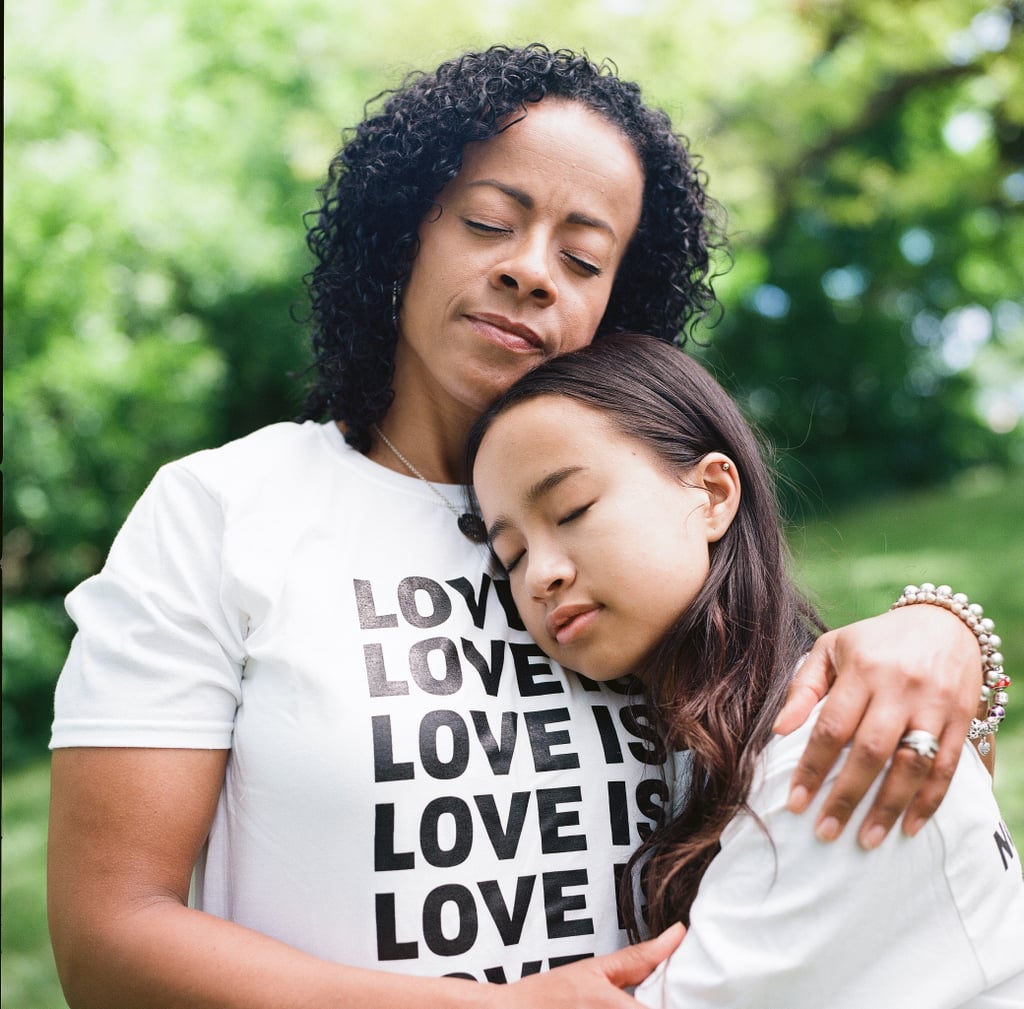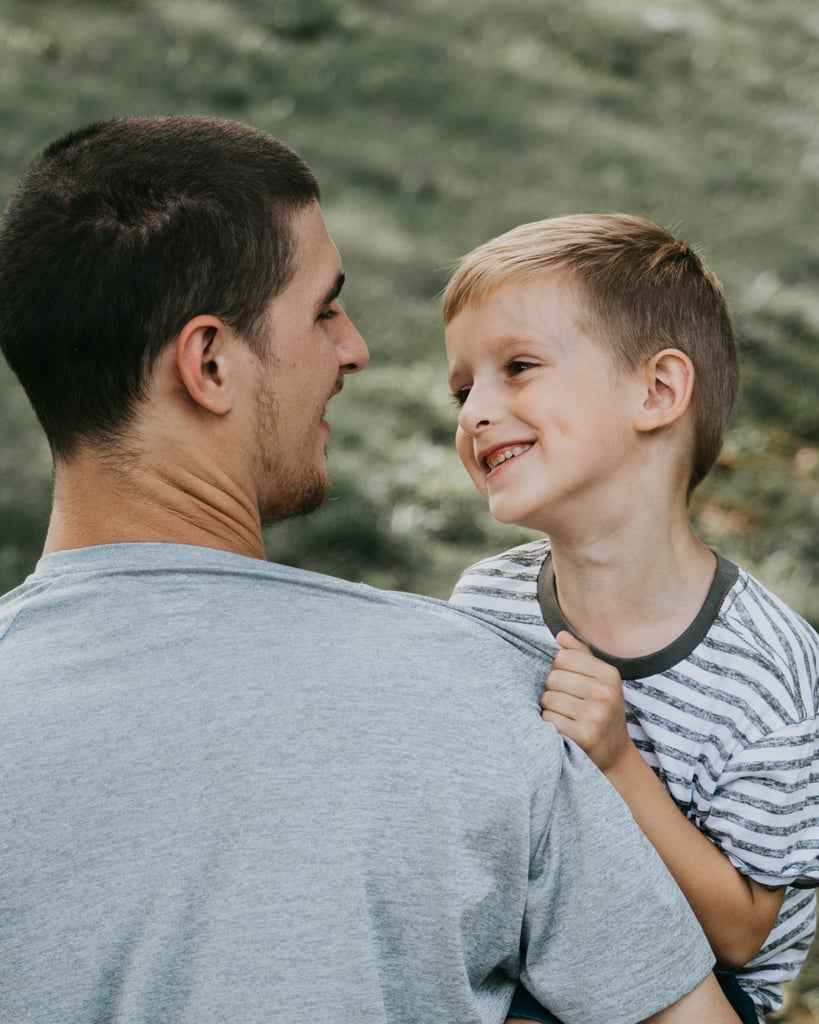Most parents know the heartache that comes with seeing your child sad [1], sick, or hurt. You can feel helpless about how to comfort them, and it can tear you apart. But while you'll do anything to take that pain or sadness away, it's important to remember that sorrow is a natural part of life for everyone. Parenting doesn't come with a handbook [2], which is maybe a good thing, because every parent should navigate their role in a way that works best for them and their child [3]. And no two children are the same.
Just as parenting lacks that handbook we sometimes desperately want, children aren't equipped with that Childhood 101: How to Handle Emotions book you might sometimes wish they also had. That's where you come in for the assist! Dr. Nicholas J. Westers, Psy.D, Clinical Pyschologist at Children's Medical Centre Dallas and Assistant Professor at UT Southwestern Medical Centre, tells POPSUGAR that kids need to learn how to navigate all aspects of life, including the good, bad, happy, and sad. And that all starts with you. "Parents need to learn to model well," he explains. "Part of that modelling is being able to articulate the emotion [4], validate the emotion, educate about the nature of emotions, and support through the emotion." Not sure where to start? Keep reading for 15 phrases and approaches to cheer up a sad child.
"It's OK to be sad."
While you don't want your children to stay sad or continue to hurt, it's necessary to validate pain and sadness just as much as we validate happiness and success. "Rescuing them by immediately trying to cheer them up is rarely the best thing to do," Dr. Westers explains.
The best way to cheer up a sad child is to help them work through their sadness. And when you tell your child that it's OK to be sad or angry, it gives them a platform to open up to you and work through whatever is bothering them.
“I understand why you feel that way.”
Sometimes just hearing the word "understand" can help your child deal with the difficulty of whatever it is they're facing and know that they're not alone.
Talk About a Similar Experience From Your Own Childhood
Talk about how you handle your emotions, or share a story about a time you felt similar emotions. This can be a great opportunity to bond with your child, as well.
“I’m here to listen. What’s bothering you?”
Take the time to really listen and hear what it is they're going through. But Dr. Westers also cautions to "be OK if your child is unable to articulate what's bother them. Remember, listening is often the 'fix' when fixing doesn't fix."
“I don’t know exactly how you feel, but I hear what you're saying.”
The truth is we don't always know EXACTLY how our child feels, so saying you do can cause them to shut down. Being truthful by saying you don't know how they feel, but you still hear what they're saying, is a great way to show them you are truly listening. "Parents can repeat back to the child what they hear and check in with their child for accuracy," continues Dr. Westers. "This will help you make sure the parent truly is hearing what they're saying."
“I’m sorry this is happening to you.”
Empathy can go a long way when helping your child navigate through their emotions. When you show your child that you understand their feelings and share in their pain, it can help alleviate the burden of what they're feeling. This doesn't give them the impression that you'll fix everything for them, but it shows you're willing to embrace their feelings with them.
Model Empathy
When you're empathetic with your child, you teach them to be empathetic to others. This will help them metabolize sadness as they get older and help those around them tolerate their own distress.
“I wish I could help fix this completely, and I’m here to support you until it gets better.”
This is a perfect way to give your child the sympathy they need to embrace their emotions, and the compassion they need to work through them. It's an excellent demonstration of balance, and can be a great resource for your child.
Dr. Westers suggests this to make sure our children don't avoid their emotions: "When we immediately rescue them from difficult emotions, you run the risk of impairing their ability to learn to experience and process natural emotions in a healthy way."
“How can I help make this better?”
Once you validate your child's feelings and give them time to sit in their sadness or distress, it's time to help them overcome it as much as they will let you. Ask them how you can help them make it better. Let them understand that you want to help them, but are willing to wait until they're ready.
“Let’s see if we can find a solution together.”
Children often have trouble understanding what they need to feel better. When you offer to find a solution together, it may give them the support and courage they need to find an answer.
“Let’s go on an adventure. Maybe it will help figure things out!”
This is certainly not a direct solution, but it can be helpful. Remember, sometimes children have a hard time even figuring out what makes them sad. In those cases, doing something they like may make them feel better and it can give you a chance to talk.
But even if you do decide to do something fun to distract your child from their sadness, you should always use it as a chance to talk. Once they start to work through their feelings of sadness or distress, they may be able to step back and put into words what was bothering them and why.
“You can be sad and happy at the same time.”
Sometimes children struggle with the fact that they feel two very different emotions at once. They may be sad about whatever is bothering them and happy that you take the time to help them through it. Let them know that this is totally OK and normal.
“You are enough.”
Always give your child the confidence that their feelings matter and are important to you. It's easy to fall into a cycle of negative emotions when you're already feeling down, and children need to feel that their emotions matter to those around them. Dr. Westers encourages parents to expand on this so their children know the true meaning of the statement.
“I love you, no matter what.”
It's important for children to know that, no matter what they're feeling, it will never change how you feel about them.














